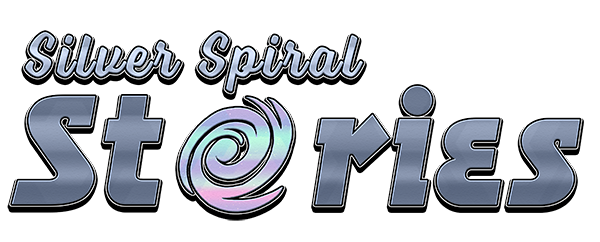
The following short story, “Son of the Soil,” was originally published on Wattpad and has since been published here. It has received some corrections. “Preacher” was written by David Davis.
You can follow other short stories using the stories category.
I stand on the corner of the hastily cobbled street of the colony. More specifically, I stand above the road on a small plastic crate mounted on a curb. It is flush against a small, rusted pop-up building; itself a remnant of the Neutrality’s initial expansionist thrust. Now, though, it only represents the failings of our government.
A small window welded into the metal wall looms above my head, and sticky, sweet, warm air spills out of it. Someone is cooking, and I think about how hungry I am. My hand absentmindedly drifts over a pocket in my robes, hiding a small but juicy choba, but I need to save that for later.
I observe the single lane that makes up the colony, watching my fellow Cyclopasians, dour and dull, as they wander the street on their morning business. Business which seems to extend no further than the ten buildings surrounding the lane, barring the small shelters constructed by the colonists and the far fewer settlements beyond.
What is most striking are the rolling hills, spiked with hundreds of burial pillars in “honor” of the dead. I observe each one, different in size and complexity, unique to the families that erected them, unique to the departed that the pillars represent. For so long, those pillars were mixed from concrete, with the ashes of the dead themselves mixed within.
The Ancestral Order, where I place my faith, has worked hard to end the practice. The pillars themselves are a noble yet misguided effort, but the desecration of the bodies fills us with rage.
I see the Marshal down the way, across the street, sitting in front of the largest building in the town that houses the extent of the public services of the colony. It also houses the only real G.I.N. relay that connects Dokanna to the larger system and to the larger galaxy. The Marshal’s hood is propped over his head, and his long, pointed ears are tucked beneath it, distorting the hood just enough to give his profile a diamond shape.
I have been careful not to provoke him during my stay. I preach the words here; I speak plainly of one set to find those who desire to hear the other set and learn my true purpose.
My mind wanders to my choba and I consider eating it now, but I will not have it later. I shut my eye and remind myself to wait.
To wait. I will eat soon enough. I will eat something to wash the taste of the blood from my mouth from last night’s meal. The blood of the feral vermin was foul, but it staved off my hunger.
I steady myself on my makeshift pulpit and begin to share the word.
“Hear me, brothers and sisters! Our ancestors cry out for you not to forsake them!”
A passerby pauses, looks up at me, and then turns his gaze toward the pillars. He begins to walk away, but I take aim with my words.
“You, brother, do you have family in those hills?”
The passerby stares at me for a moment with a discernable distrust. “Yes, my mother is there,” he tells me.
“Did you burn her body?” I ask him in the most sympathetic voice I can muster.
“E-excuse me?” he says as his eye grows wide.
“Did you burn your poor mother’s corpse, brother?”
He furrows his brow, and he spits at my feet. “Farking zealot,” he yells at me.
I shake my head and turn back to the crowd on the street. He stomps off. I continue.
“We’ve drifted far too long away from the true ways of our ancestors. In our past, we entombed our ancestors. We’ve abandoned the respect of their physical form!”
I stare at the crowd. A few look from the corner of their eye at me.
“How can your loved ones be reborn in the afterlife with no corporeal form to draw from? Think of the existence you are forcing upon them!”
I feel the anger rise from deep within, someplace low and primal.
“The act of burning is savagery! We burn the diseased and the plagued! When a field has a blight, you purge it with fire. You burn what is foul. You do not burn your children!”
I am shaking. As I speak, I see the man from earlier talking to the Marshal, pointing to where I stand.
My message will not be stopped.
“You burn your sons and daughters. You set fire to your mothers and fathers! And you dare question the misery around you in this pissbucket you call a colony?”
More eyes upon me. Good.
“You burn your families like refuse – the refuse your government thinks you are. You fools. There is eternal life for you and your families, even now. Don’t destroy their bodies! Entomb them for the afterlife, where they will rise again!”
The Marshal approaches. He has a look of disgust on his gaunt face. I do my best to match his expression.
“Clear out,” he tells me, “you’re disturbing the peace.”
“Peace?” I scoff. “What peace is there for your ancestors? They are no more than firewood to you all.”
He locks his eye on mine. Neither of us blinks. I bare my teeth.
“If you don’t clear out,” he says slowly, “I can’t be held responsible for the crowd.”
My eye shifts to the surrounding group. There are at least ten people.
I stand firm.
“If my presence brings this community such shame, perhaps your collective sins are more egregious than I thought. If you burn your families, who knows what else you may do to them, Marshal.”
I put venom in my accusation. I don’t know if the Marshall has any hidden crimes, but an accusation is enough to cast doubt.
He stares at me as he begins walking away.
“Shame about these crackpots calling us modern colonists a bunch of disrespectful jackasses,” he calls back to nobody in particular.
I see the group of ten around me shift closer.
The Marshal calls back, “I’ll be having a drink. Let’s hope nobody puts you in your place, preacher man.”
Before he is in his shack, I feel something small and sharp hit my cheek. The feeling of warm blood trickles down my face, and before I know it, I am under a barrage of fists, feet, and sticks. I lose my balance and fall from my crate onto the unfinished pavement.
I curl up into a ball as the blows continue to rain down.
“Off! Get off him!”
I hear from someone nearby. Before I know it, the assault has ended. I cannot see my savior.
“Get up. You’re safe now.”
I uncurl and look up at a smiling young man of about twenty or so. His skin is dark green, and his hair is a brownish color. His eye is golden in hue. He looks dirty, not as though he does not care for his image, but rather that he has been hard at work.
He extends a hand to help me up and helps me to rise to my feet – he is strong.
“Thank you,” I say. I offer all I have – the bruised and broken choba in my pocket. He refuses my offering with a wave of his hand.
“Let’s get you some food,” he says.
We wander toward the edge of town together. He notices my pained limp and slows his stride to keep me company to ward off errant attackers. Mercifully, there were none.
We arrive at his home, which I find admittedly impressive for the colony. It was a small home, but it was of quality and, from what I could tell, one of the oldest homes built in the area. As we enter, his young wife welcomes me and offers us lunch.
As we eat a meal of rehydrated algae noodles and mushroom stew, I learn they had only recently been married. Orthos, the young man, had worked for months as colonial security and had managed to catch the eye of the young Kolea. She was the daughter of one of the colony’s founders.
They lived here in this house with her father, who had recently died. Orthos, it seems, had stumbled upon me when coming back from the memorial hill, building the family’s pillar.
Kolea excuses herself from the table as Orthos leads me into the central room of the house. He offers me a chair, and my bruised and weary body sinks into it.
“In truth,” Orthos leans towards me, “I heard your sermon, and while I do not agree with your delivery, I agree with the sentiment.” He lowers his head. “I am just following the wishes of Kolea. She and her father don’t – didn’t – follow the old ways. My family has a tomb back on the homeworld.”
I look up at him – my eyes tearing up – overjoyed that such an admirable and gentle young man follows the old ways. I am so relieved by this that I choose to ignore the fact that he had his father-in-law cremated.
Suddenly I wonder if he is my reason for being in this heathenistic backwater world. Surely men like him could lead The Order to greatness. I feel my ambition grow, however. He could be so much more. My mind drifts to the inner circle, the council of lords and underlords, where the real work is done. I only know of it, never having the privilege of meeting them myself.
I think, though, that a man like Orthos could become a leader in The Order and carry me into the eternal salvation of Y’tun Sargon’s gaze.
“Tell me, young man, are you happy here?”
The man’s expression speaks volumes. He tries to put on a smile but merely shrugs his shoulders.
“What if I could get you to a proper planet?” I ask. “A proper planet where you could get real work in The Order?”
“The Order? What sort of work?”
“The Order has many jobs, Orthos. We need builders, scribes, and researchers… we want to make our race great again. We want to bring back the old ways, which are still the best.”
Orthos considers my words for a moment.
“Why haven’t you gone?” he asks me.
“I must speak the word of The Order from colony to colony. Such is my job as a missionary. The Ancestral Order is devoted to the preservation of our culture and traditions. We still believe in the old ways… all of them.”
He leans closer and asks, in a whisper, “Including Y’tun Sargon?”
I smile at him. “But of course.”
He leans back in his chair and nods to himself. “I do miss civilization,” he shakes his head and looks out a window at the untamed landscape outside, “so very much.”
I stretch slightly and whimper from pain. The pain is real, but I put extra emphasis on the whimper. I lean back into the chair and smile.
“Would you like to know more?” I ask.
Orthos stands up, makes his way to a shelf made of recycled shipping containers, and pulls out a bottle of some spirit and a pair of glasses.
“Would you like a drink?” he asks.
I smile and nod. Here is where my real work begins.
I pull the choba from my pocket – I’ve earned it.

